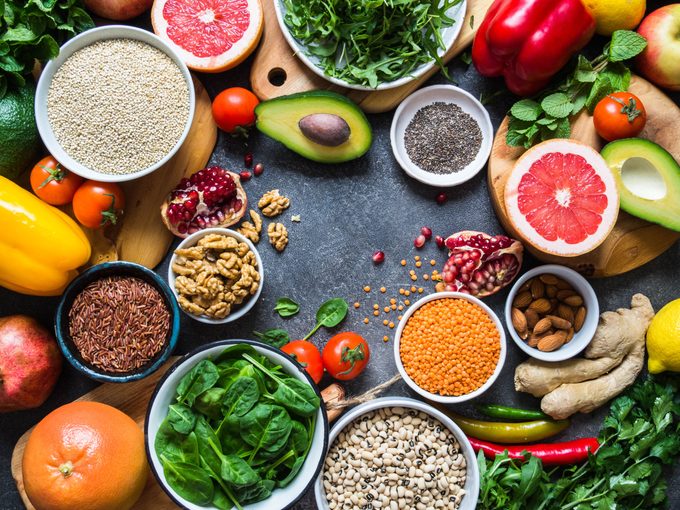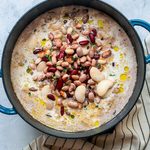These Are the Only 2 Diets Most People Are Able to Maintain Long-Term
Fad diets may be tempting, but unless you find a plan you can maintain for the rest of your life, you'll most likely regain the weight.
Do diets work?
When you’re looking to lose weight, your first instinct might be to go on a diet. There’s always a new fad plan that seems to be more and more restrictive. Because they’re so difficult to maintain, says Natalie Allen, RD, a dietitian and instructor with the University of Missouri, people fail more often than they succeed. Most diets help with weight loss in the short term, but when the weight loss tapers off, people go back to their old ways and regain the weight.
“One of the biggest issues for people, besides getting tired of the limited options, is it’s so much work,” she says. “People need to plan, go to the store, cook healthy things—when a diet controls every decision in your life, it’s difficult to sustain.”
However, there are at least two diets that beat the odds: the DASH diet and the Mediterranean Diet. Allen says research has shown these diets are sustainable and help keep your heart healthy and lower your blood pressure in the long term. And rather than focusing on eating or avoiding any one type of macronutrient, the Mediterranean and the DASH—it stands for Dietary Approaches to Stop Hypertension—diets are more about guidelines to help you make better overall food choices, according to Michelle Abbey, RDN.
“Many diets are built around a restriction of some food or food group,” she says. “Psychologically, as soon as we are told we can’t eat X, that’s exactly what we want. Mediterranean and DASH diets put more of an emphasis on what to include, and simply limiting processed foods, sugars, and alcohol. The diets come with guidelines, giving them more of a doable feel then diets that are defined by an all or none mentality (eat X and you fail!).”
Benefits of the Mediterranean and DASH diets
The Mediterranean diet is inspired by eating habits from the Mediterranean region and encourages having lots of fruit, vegetables and whole grains, and limiting the consumption of dairy, red meat and processed foods, according to Heart and Stroke. It also allows for some red wine. If you’re curious about giving it a try, here are some recipes that are a part of the Mediterranean diet plan. “The Mediterranean diet is a sustainable diet that focuses less on the quantity of food consumed, and more on the quality of food in one’s diet,” says dietitian and founder of To The Pointe Nutrition Rachel Fine, RD. “The Mediterranean diet is high in healthy fats and naturally occurring fibre from sources like minimally processed plant-based foods such as grains, legumes, nuts, and seeds. These foods offer significantly more nutrition per bite.”
The DASH diet focuses on daily and weekly nutritional goals, according to the National Heart, Lung and Blood Institute. Like the Mediterranean diet, it emphasizes eating fruits, vegetables, whole grains and including fat-free and low-fat dairy products, fish, poultry, beans, nuts, and vegetable oils. It also recommends limiting foods that are high in saturated fat, full-fat dairy products and tropical oils; you’ll also give a wide berth to sugar-sweetened food and drinks. “Like the Mediterranean plan, the DASH diet focuses on lowering blood pressure through increased consumption of fresh fruits and vegetables,” Fine says. “Unlike many fad diets, both the Mediterranean and DASH diets do not focus on eating or avoiding any one type of macronutrient (like carbs or fat). Rather, it’s a matter of choosing higher quality food sources.”
Give dieting a go
Despite the fact that diets don’t have the best reputation, Allen still recommends trying these two. “If people want to do a diet plan, sometimes that helps them get started,” she says. “It takes away their guesswork and gives them a place to start. Hopefully, they can change their habits and branch out a little bit and incorporate other foods.”
Ideally, the plan you adopt becomes a way of life, she says, because that’s the only way you can make a long-term change. She also stresses that any diet will require other lifestyle changes like regular exercise, avoiding high-calorie drinks, and a regular sleep schedule.
Next, read up on 15 things you don’t realize are sabotaging your weight loss.





